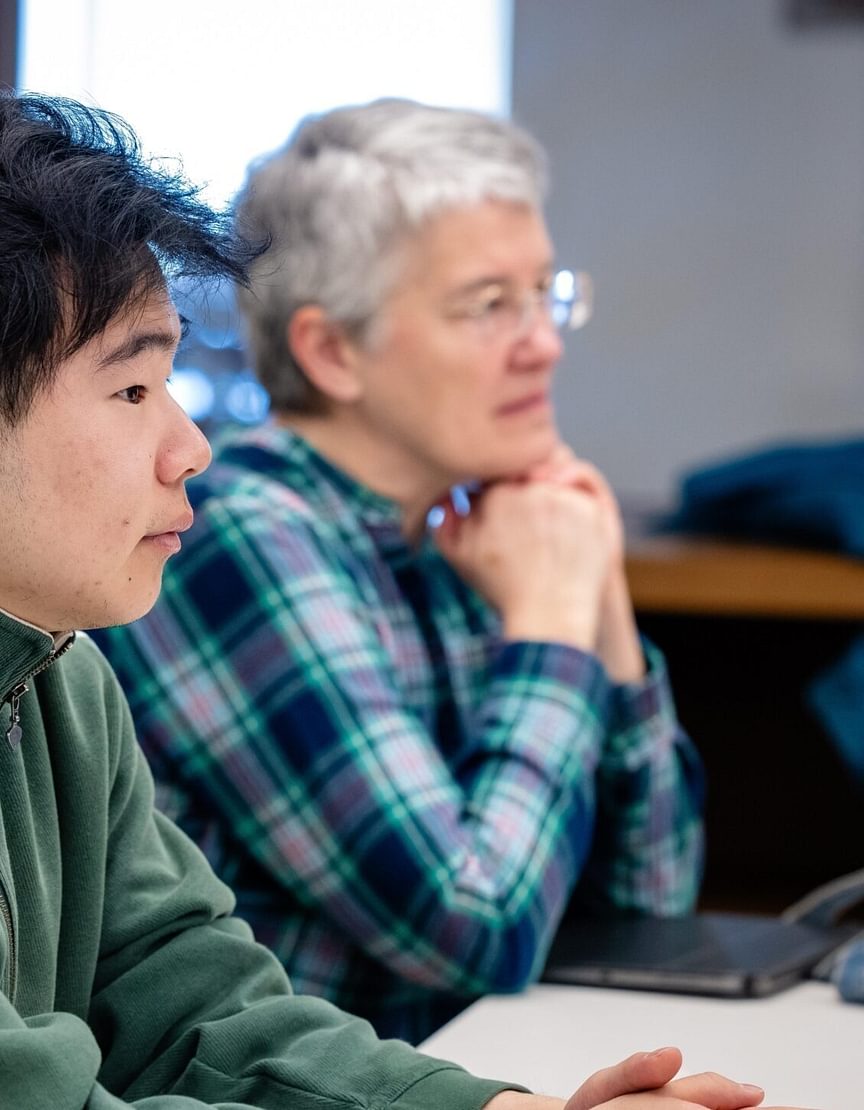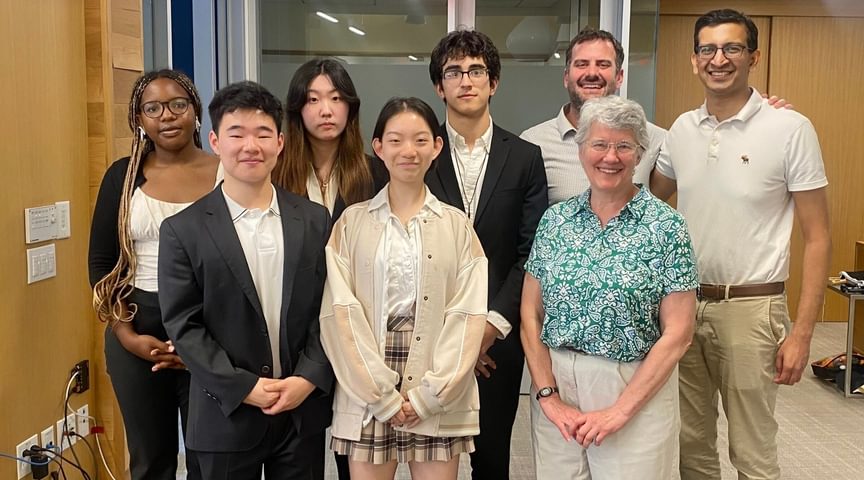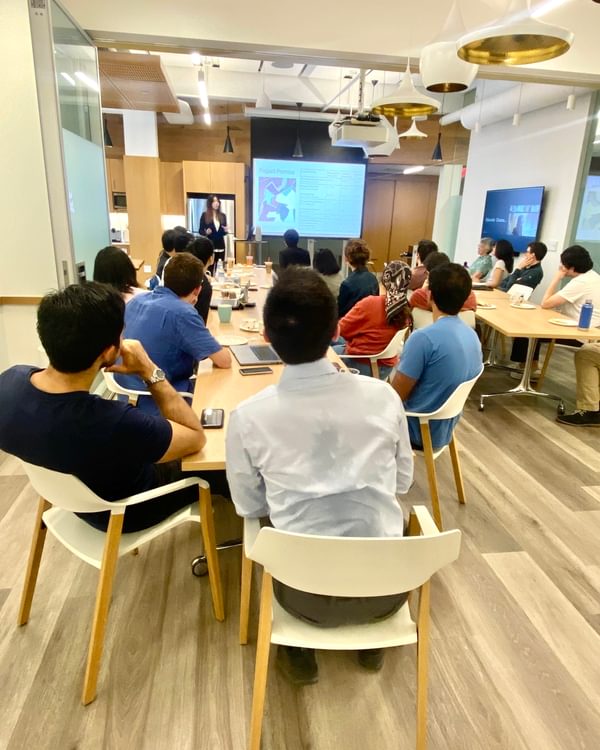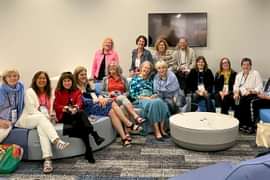
May 31, 2024
The Workshop as an opportunity
Working with 5 students from the Workshop was a learning opportunity for them...and meby Ellen Greenberg, Instructor in Mathematics, Statistics, and Computer Science
This post originally appeared on the Tang Institute blog.
Five seniors* in the Workshop spent the early spring working with me on a project on income inequality, one that would scaffold the transition from their previous schedules and coursework to the flexibility of the research-based workshop gifted to them in their final term at Andover. Using the work of Opportunity Insights as a guide, we explored income inequality — where it exists, what it impacts, its root causes, and ways to address and alleviate it for those living in the United States.
To frame the study of inequality we read books: Broke in America: Seeing, Understanding, and Ending U.S. Poverty (Goldblum and Shaddox); Poverty, by America (Desmond); and The Injustice of Place: Uncovering the Legacy of Poverty in America (Edin, Shaefer, Nelson). Then we turned to tools and data, some that I introduced and some that the students found or taught themselves to use. Every day I flooded the Slack channel with current events, media reports, stories and data, new ways to see how research plays out in policy, and how policy impacts communities, both locally and nationally. Immersion in this interdisciplinary topic took different forms for the students, as each struggled to balance individual research interests with a collective theme. The students have taken deep dives into the data of gentrification, transit based-development, neighborhood support for Black-owned businesses, housing initiatives, the impact of the Longwood Medical area, and how social capital and economic connectedness plays out in local high schools.
My challenge throughout the term has been to provide both structure and freedom, willing the students to take the reins and run with their interests, while providing feedback that encourages growth and independence. This is the learning moment for me, to let go of the boundaries I have in a more traditional classroom and think creatively and passionately about how to best engage students outside of a curriculum, while my constant hope is that they will engage in meaningful work without needing a push from me.
After more than 30 years teaching mathematics and statistics, I appreciate the space to model productive failure and engage with a new mode of teaching. I learn more with each conversation, each group meeting and individual feedback session, and each time I let go and hope they can find their way. They must find their own way. This is a moment in their life when the path they take is based on their own direction. Applying to the Workshop was asking for the freedom to break free of the same boundaries I let go of. I am attempting to guide them from the limits of traditional schooling to a greater expanse of learning. I try but don’t do it right for all students, as each has their own needs, direction, and intrinsic motivation. My colleagues in the Workshop have heard me lament wanting to do better, wanting the students to do better.

This is the learning moment for me, to let go of the boundaries I have in a more traditional classroom and think creatively and passionately about how to best engage students outside of a curriculum…
”
Much of this angst came to a head as we prepared to travel to Cambridge on May 21 to present their work, Social Mobility in the Mission Hill/Roxbury Area, to a team of researchers at Opportunity Insights, which is under the direction of Harvard economist Raj Chetty. This was our culminating event and we had to do it right. The students would be speaking to the people who created the Opportunity Atlas and Social Capital Atlas that helped to frame our research into how the place where one lives impacts social mobility. They had to speak to their research, the lessons learned, the connections between big data and the lives of individuals. That there were more questions than conclusions felt right given the time they had and the baseline they started from.
Early dry runs of the presentation were not promising. The lack of focus in the individual components and missing transitions between students left much to be desired. The rambling speeches did nothing to impress the listeners. Faculty and peer feedback pushed students to speak to facts, to research, to deepen their motivation and connection to the data. In response, the students produced slides, then deleted, refined, and strengthened them. Confidence and poise were slow in coming, but by practicing and then listening to feedback, the students found their voices.
When the five seniors walked out of the elevator and into the offices of Opportunity Insights in Harvard Square, Cambridge, they were excited and ready. The coordinated and thoughtfully structured presentation impressed a receptive audience that readily engaged the students, particularly around a final slide detailing suggestions for making the Atlas and data easier to access and use. The conversation became researchers talking to researchers, veterans helping rookies find their footing in the big leagues. Each student individually will have takeaways from the project, and I am no different. As the Workshop comes to a close with graduation just days away, I am already churning out ideas on how the experience will impact my future teaching. What an amazing learning opportunity for all!
After more than 30 years teaching mathematics and statistics, I appreciate the space to model productive failure and engage with a new mode of teaching.
THE WORKSHOP
Each spring term, the Workshop welcomes approximately 20 seniors to this interdisciplinary, project-based course. With an eye toward reimagining what school can be, the Workshop is the senior’s only academic commitment for the entire term. Instead of splitting their time and attention into units of distinct courses and fields of study, they work closely with peers, faculty, and community and global partners on a series of linked, interdisciplinary projects that revolve around a single theme. Within the theme Experiments in Education, students explore areas of personal interest.





